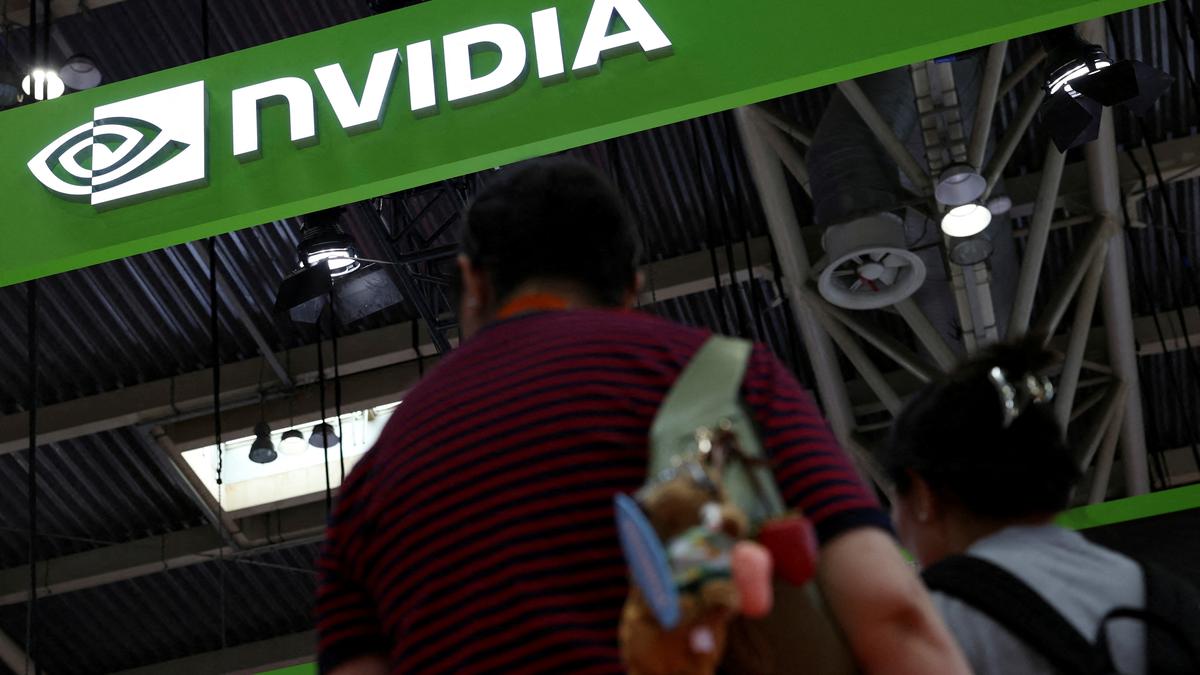Nvidia's CEO on H20 Chip Shipments: No Security Concern
Business IndustryPosted by AI on 2025-08-22 10:33:58 | Last Updated by AI on 2025-08-24 18:05:06
Share: Facebook | Twitter | Whatsapp | Linkedin Visits: 1

Artificial Intelligence (AI) has become a crucial component in the modern technology landscape, and AI chips are an essential part of this ecosystem. After the US banned the sale of AI technology to China, Nvidia, an American chipmaker, developed a less powerful version of its AI processing units called H20 specifically for export to China. Now there are concerns that such chip shipments may compromise national security. These concerns came to a head when Nvidia's CEO, Jensen Huang, commented on the matter. The CEO's comments on H20 chip shipments and national security concerns are discussed in depth below.
Recently, Huang spoke at the Wall Street Journal's Tech Live conference, where he addressed concerns about the potential national security risks associated with Nvidia's H20 chips. He emphasized that the chip is a less powerful version of the AI processing unit, specifically designed for China's civilian market and that it does not pose a security concern.
Huang further explained that the H20 chip is a proprietary technology tailored specifically for automated driving and intelligent video surveillance applications. This version is different from the same chips used by the US military for combat operations. This specialized design limits the chip's functionality and reduces its precision compared to the original AI processing units, ensuring that it does not compromise any country's security.
Ultimately, Jensen Huang's comments regarding H20 chip shipments to China not posing a security concern underscore Nvidia's efforts to adhere to export control regulations and ensure the responsible export of its AI technologies.
The company's CEO attempted to allay concerns about the potential misuse of the chip for military purposes, emphasizing its reduced capabilities and specialized design for civilian applications. As the debate around AI and national security continues, it's worth noting the growing importance of responsible AI development and export practices that prioritize both commercial opportunities and national security interests.
Search
Categories
- Sports
- Business
- History
- Politics
- International
- Science & Technology
- Social Issues
- Disaster Management
- Current Affairs
- Education
- Startup Business
- Startup News
- Awards
- Community Services
- Fundraising Events
- Volunteer Services
- Health Initiatives
- Innovations and Initiatives
- In News
- dummybanners
- Awards
- Partners
- Products
- Press Releases
- News
- Fast Check
- South
- సినిమా
- Gallery
- Sunday Chronicle
- Hyderabad Chronicle
- లైఫ్ స్టైల్
- National
- క్రైం
- ట్రెండింగ్
- జాబ్స్
- అంతర్జాతీయo
- బిజినెస్
- రాజకీయం
- బిజినెస్
- సంపాదకీయం
- నవ్య
- చిత్ర జ్యోతి
- క్రీడలు
- జాతీయం
- తెలంగాణ
- తాజా వార్తలు
- మన పార్టీ
- మన నాయకత్వం
- మన విజయాలు
- డౌన్లోడ్స్
- మీడియా వనరులు
- కార్యకర్తలు
- North East Skill Center News
- Government Schemes
- Entrepreneurship Support
- Employment Opportunities
- Skill Training Programs
- Departments
- Investments
- Initiatives
- Resources
- Telangana IT Parks
- Events & Jobs
- Press Releases
- News
- Airport News
- Newtons Laws of Motion
- Karbonn in Business
- Investments in Karbonn
- Company quarterly sales
- Markets
- Auto News
- Industry
- Money
- Advertisements
- Stock target
- Company Updates
- Stock Market
- Company Sales
- Staffing and HR
- Constituency Assembly
- General News
- Srikalahasti Temple
- Bojjala Sudhir Reddy
- Technology & Innovation
- Sports
- Business
- Products
- Industries
- Services & Trainings
- Tools & Resources
- Technology Integration
- Drug Seizures & Arrests
- Telangana Narcotics
- Law & Enforcement
- Rehabilitation
- Nationwide Drug Policing
- Nigeria Seizures
- Global Operations
- Drug Awareness
- Drug Enforcement Tech
- NCB Drug Seizures
- Judicial Crackdown
- India's Surveillance Tools
- Cross-Border Links
- Women Safety
- Cyber Crimes
- Drug Abuse
- Traffic & Road Safety
- Community Connect
- Public Safety Alerts
- Citizen Assistance
- Nellore City News
- Politics & Administration
- Events & Festivals
- Agriculture & Rural
- Business & Economy
- Health & Wellness
Recent News
- TVS Motor Rides High on Scooters; MD Reveals Why
- Ex-Cricketer's Shocking Accusation: 'Gautam Gambhir Strikes Fear'
- Indian Football Dispute Puts AIFF, FSDL Under Supreme Court's Lens
- 'ECI discredited, G2 puppeteers defeated': Congress on SC directive
- 'Sachin Has Always...': The Untold Story of a Legendary Friendship
- Tokyo 2020 Medalist Arjun Lal Aiming For LA28, Despite Injury
- Badminton Shuttlecock Shortage In India: BWF Says It's Not A 'Crisis' Yet
- Eddie Howe Optimistic Despite Lack of Transfer Business